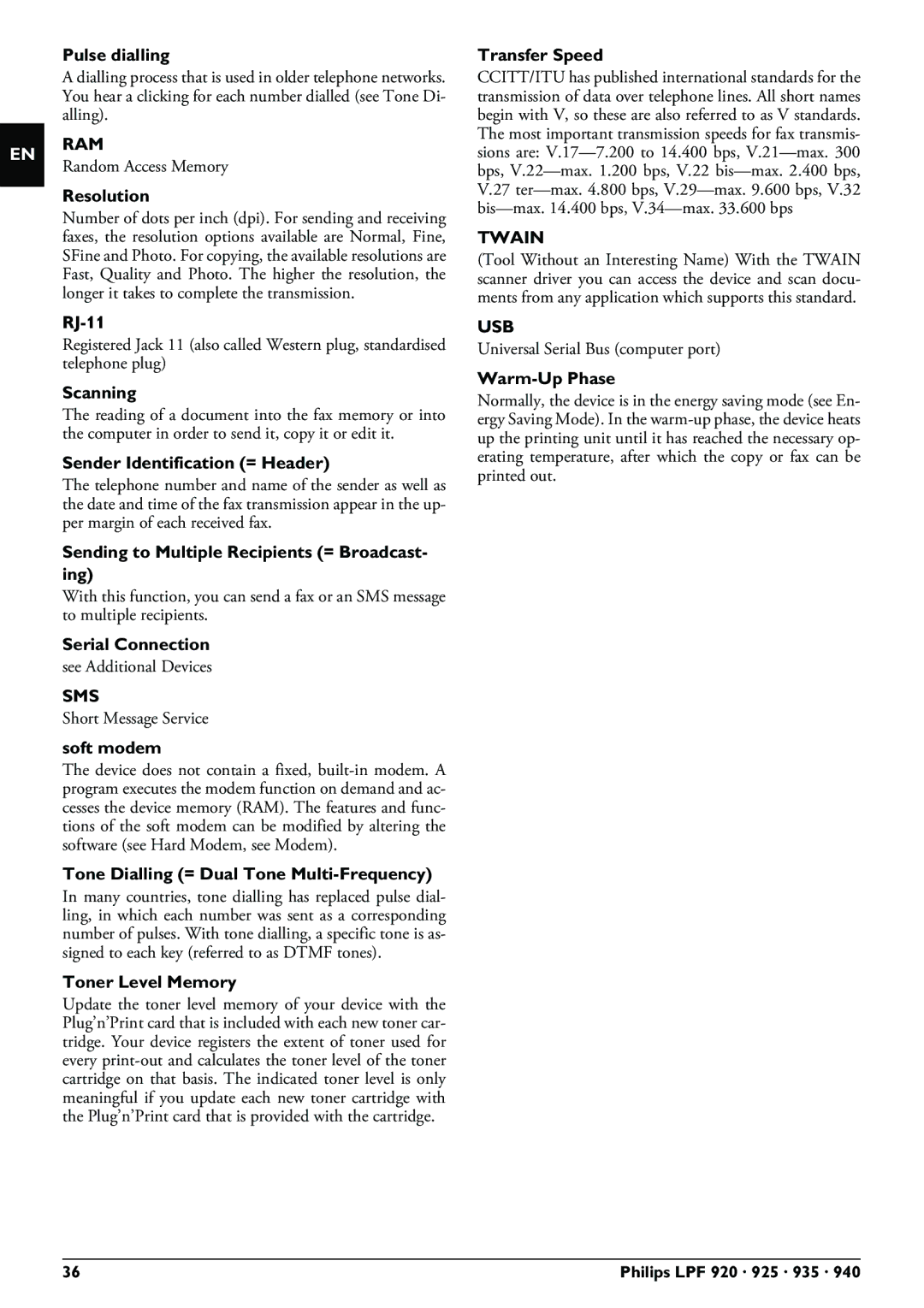
EN
Pulse dialling
A dialling process that is used in older telephone networks. You hear a clicking for each number dialled (see Tone Di- alling).
RAM
Random Access Memory
Resolution
Number of dots per inch (dpi). For sending and receiving faxes, the resolution options available are Normal, Fine, SFine and Photo. For copying, the available resolutions are Fast, Quality and Photo. The higher the resolution, the longer it takes to complete the transmission.
Registered Jack 11 (also called Western plug, standardised telephone plug)
Scanning
The reading of a document into the fax memory or into the computer in order to send it, copy it or edit it.
Sender Identification (= Header)
The telephone number and name of the sender as well as the date and time of the fax transmission appear in the up- per margin of each received fax.
Sending to Multiple Recipients (= Broadcast- ing)
With this function, you can send a fax or an SMS message to multiple recipients.
Serial Connection
see Additional Devices
SMS
Short Message Service
soft modem
The device does not contain a fixed,
Tone Dialling (= Dual Tone Multi-Frequency)
In many countries, tone dialling has replaced pulse dial- ling, in which each number was sent as a corresponding number of pulses. With tone dialling, a specific tone is as- signed to each key (referred to as DTMF tones).
Toner Level Memory
Update the toner level memory of your device with the Plug’n’Print card that is included with each new toner car- tridge. Your device registers the extent of toner used for every
Transfer Speed
CCITT/ITU has published international standards for the transmission of data over telephone lines. All short names begin with V, so these are also referred to as V standards. The most important transmission speeds for fax transmis- sions are:
TWAIN
(Tool Without an Interesting Name) With the TWAIN scanner driver you can access the device and scan docu- ments from any application which supports this standard.
USB
Universal Serial Bus (computer port)
Warm-Up Phase
Normally, the device is in the energy saving mode (see En- ergy Saving Mode). In the
36 | Philips LPF 920 · 925 · 935 · 940 |
